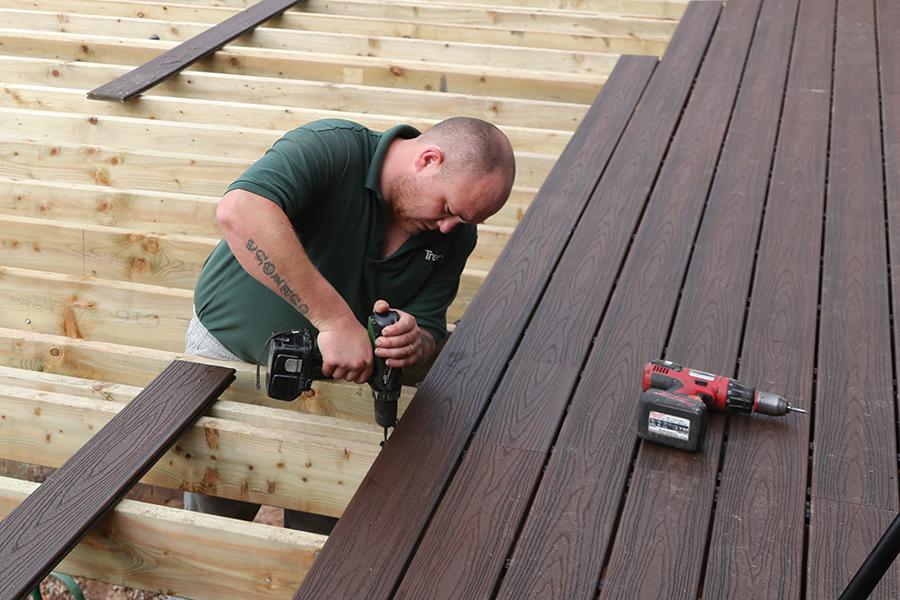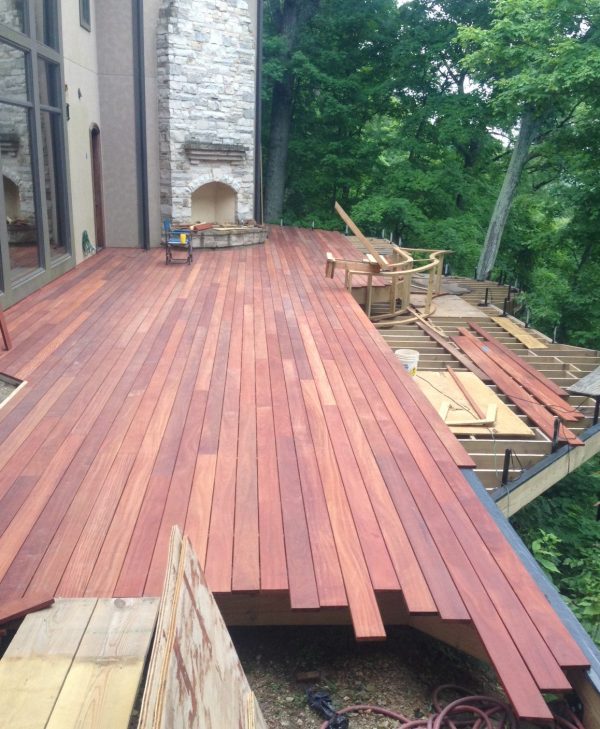Trust a local deck installer Austin to bring your backyard vision to life efficiently and affordably.
Trust a local deck installer Austin to bring your backyard vision to life efficiently and affordably.
Blog Article
Exactly how to Choose the Right Products for Your Deck Installation Task
Picking the ideal materials for your deck installment job can appear complicated. There are countless factors to think about, from durability and maintenance to aesthetics and environmental impact. The option in between typical timber and composite materials, each with its very own set of advantages and disadvantages, can be specifically tough. The trick is to balance your budget, design preferences, and lifestyle requires to create a deck that will certainly boost your outside room for years to come.
Understanding the Different Types of Deck Materials
When starting a deck installment job, the selection of materials comes to be a critical decision. Various options are readily available, each with distinct features and visual allure. Typical timber, for example, provides a classic, all-natural appearance and is normally more cost-efficient. It can warp over time and requires normal upkeep. Compound products, on the other hand, are a blend of timber and plastic, supplying resilience and resistance to weather elements. They require much less upkeep contrasted to wood yet are typically a lot more costly. Another choice is vinyl, which is basically maintenance-free and resistant to insects and rot, albeit much less natural-looking. By recognizing these distinctions, house owners can make a much more informed choice on one of the most ideal deck material for their specific needs.
Evaluating the Resilience and Maintenance Needs of Deck Materials
Evaluating the durability and maintenance requirements of deck materials is an essential step in deck installation. Sturdiness includes the product's capacity to endure extreme climate conditions, wear and tear, and its long life.
Recognizing upkeep needs is just as important. Some materials call for normal securing or discoloring to preserve their look and stand up to moisture damage, while others, like composite decking, require less maintenance. By assessing these variables, one can select the most ideal decking product, making sure an equilibrium between longevity, upkeep demands, and visual appeal.
Expense Analysis: Comparing Wood and Compound Decking
Although cost might initially look like a secondary problem, it is a significant factor when comparing wood and composite decking. Wood, typically a much less expensive option, has a lower in advance price. Nonetheless, gradually, maintenance expenditures can collect, potentially making timber much more expensive in the long run. These upkeep expenses may include discoloration, securing, or replacing damaged boards. On the other hand, composite outdoor decking, while costlier originally, needs less maintenance, potentially decreasing lasting prices. Yet, it's important to remember that composite decking isn't unsusceptible damage, and substitute costs can be high. Possible deck owners need to consider their spending plan and desire to keep their decks when deciding between wood and composite outdoor decking.
Visual Appeals and Style Adaptability of Decking Materials
All-natural timber decking supplies a traditional, timeless look, while composite materials offer a wide array of shades and textures to match varied preferences and designs. Compound products, while less versatile in layout, are still adaptable enough for many deck designs. These factors, as a result, are essential determinants in the option of decking material.
Environmental Influence of Decking Materials
When picking decking materials, one must think about not only looks and resilience, yet likewise the ecological influence. It is necessary to examine the sustainability of products and explore recycled outdoor decking choices. In addition, recognizing the potential influence on neighborhood ecosystems will make sure a much more eco responsible selection.
Examining Product Sustainability
In the realm of deck building, assessing product sustainability is an essential action. This entails reviewing the environmental effect of each prospective material, considering factors such as the power needed for its manufacturing, its carbon footprint, and its end-of-life disposal or reusing alternatives. Timber is a sustainable source, but unsustainable logging practices can lead to deforestation. Additionally, composite outdoor decking materials usually integrate timber and plastic, lowering the demand for brand-new wood yet enhancing dependence on nonrenewable fuel sources. Light weight aluminum and other metals might be a lot more resilient and recyclable, but their removal and handling can be energy-intensive. Thus, the choice of outdoor decking materials ought to balance functionality, aesthetics, cost, and sustainability to make sure an accountable and durable setup.
Recycled Outdoor Decking Options

Composite decking is especially preferred due to its durability and convenience of upkeep. It's resistant to rot, insects, and fading, making it a long-lasting alternative. Recycled plastic outdoor decking, on the other hand, is very resistant and needs marginal upkeep. While these materials may carry a greater first expense, their long life and decreased ecological effect make them a smart investment for the eco-conscious homeowner.

Influence On Local Ecological Communities
While the advantages of using recycled materials for decking can not be overstated, it's similarly vital to consider the wider ecological ramifications of these options. Proper disposal of old outdoor decking is crucial to reducing land fill waste. Basically, an eco-conscious deck task needs mindful material selection, lasting sourcing, and liable disposal.
Making Your Last Decision: Tips for Selecting the Finest Deck Products
As the post transitions right into the subtopic of "Making Your Decision: Tips for Picking the Finest Deck Materials", it is vital to understand the variety of deck materials available. Striking a balance in between longevity and aesthetic appeal is vital in this option process. The following conversation will direct readers in making an enlightened choice based on these key considerations.
Understanding Different Deck Products
The job of selecting the appropriate materials for your more deck installment can seem intimidating as a result of the substantial variety of choices readily available. Nonetheless, understanding the various materials can streamline this process. Wood is a popular option, supplying a classic aesthetic and cost. Kinds of wood utilized include pressure-treated lumber, cedar, and redwood. Composite products, made from a blend of timber and plastic, are low-maintenance and immune to rot and insects. Vinyl or PVC decks are even a lot more sturdy and require less maintenance than composite products, however they can look much less natural. Light weight aluminum decks are strong, light-weight, and resistant to rot, however they are also the most costly choice. Each material has its own advantages and downsides, making it vital to consider your specific needs before making a decision.
Toughness vs. Aesthetic Appeals Equilibrium
Stabilizing resilience with aesthetic appeals can be a challenge when picking deck materials. The choice often boils down to individual choices and the deck's intended use. High-traffic locations may demand durable materials like composite decking, which holds up against deterioration but may do not have the all-natural beauty of timber. On the other hand, timber supplies an ageless charm and heat that artificial materials struggle to replicate. It needs much more maintenance and may not last as long. For that reason, home owners need to strike a balance, thinking about both the deck's practical demands and their visual choices. By doing so, they can ensure their deck remains a functional and appealing exterior area for years to come.
Verdict
In verdict, picking the best products for your deck installation project calls for cautious factor to consider of aspects such as longevity, Full Report upkeep, cost, looks, and environmental effect. my website Whether you decide for standard wood or composite materials, your choice should line up with your budget plan, design choices, and lifestyle. Ultimately, the most effective outdoor decking material is one that enhances your outdoor room and gives pleasure for many years ahead.
Report this page